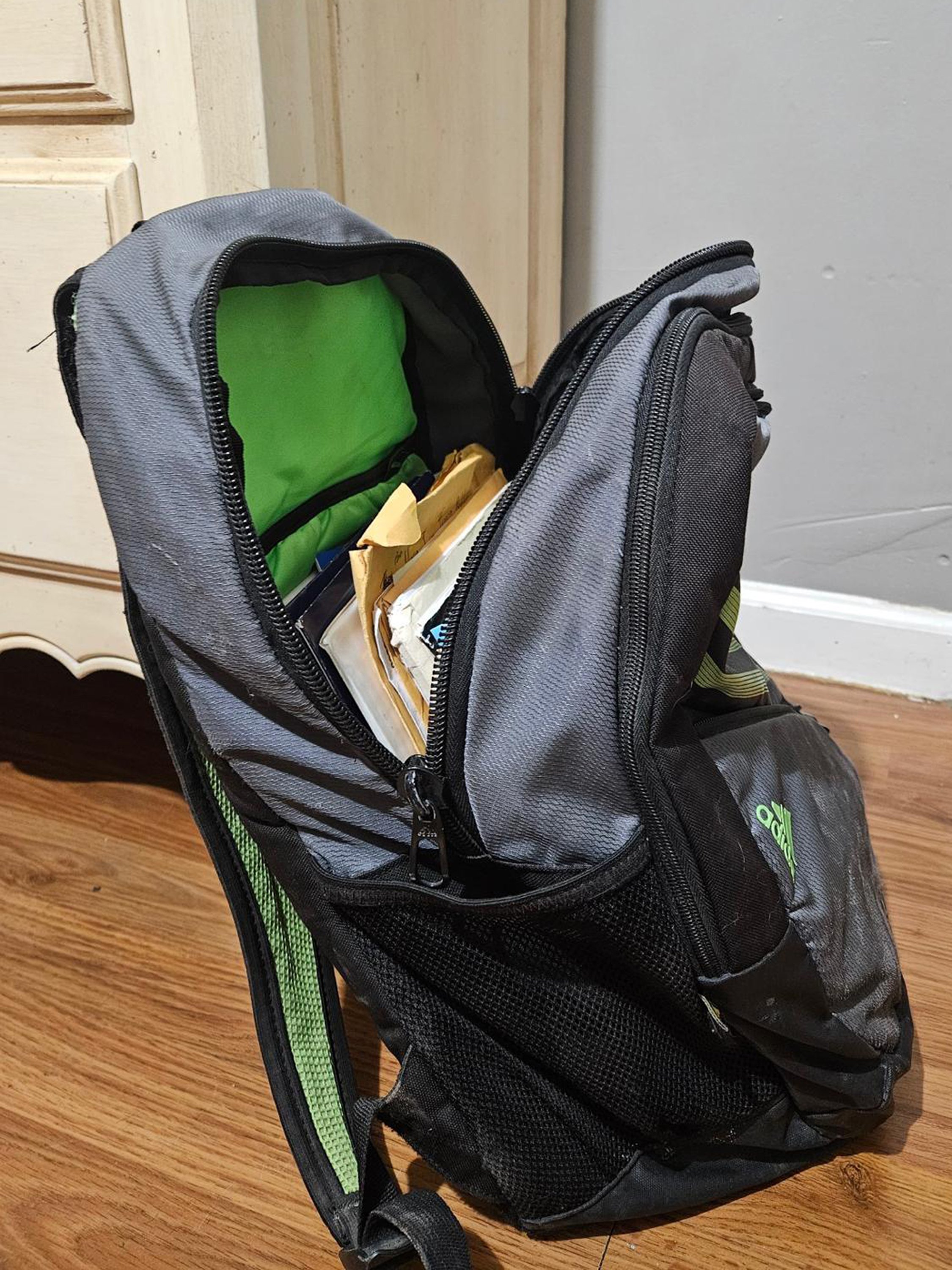A Time for Tough Choices
Photo collage by Yunuen Bonaparte for palabra
Stay or go? Mixed-status immigrant families weigh life-changing decisions in light of a new administration’s emphasis on deportation and anti-immigrant state laws.
Editor’s note: “El Voto Latino 2024: In Search of the 36 Million” began as an exploration by three NAHJ Latina journalists to understand the people behind this rapidly growing voting bloc. In their own words: “We aim to examine what this vote means at the macro level and what it says about the enfranchisement and political influence asserted by this demographic. At the regional level, more specifically in swing states, what does this vote and community represent for the political identity of that state? One cannot see, read, or hear about the election and those toss-up states without noticing Nevada and Arizona in particular. The Latino electorate in these two states has grown dramatically during the past 10 years.
Additionally, in a year marked by mass layoffs in news and fewer Latinos in newsrooms, we want to ensure that we are highlighting why it matters editorially to have Latinos in the newsroom and the type of exploration that is needed when one covers the Latino vote and community.”




This coverage was made possible by a grant through the URL Collective, a nonprofit supporting local, diverse media. palabra and URL Collective have partnered to bring you election reporting from grassroots media. |
“It’s like this old dusty thing,” Daniela Chavira explains, referring to her family's emergency kit. “There’s a bunch of binders in there that have things like birth certificates, immunization records, passports, IDs of all of us, my parents’ marriage license — things that can’t be easily replaced.” For Daniela, these binders symbolize the anxiety that permeates her family’s life.
At just 22 years old, Daniela stands at a crucial crossroads. A psychology graduate from Grand Canyon University, she lives with her parents and three siblings in Arizona. Her siblings are U.S. citizens but neither she nor her parents are. They arrived in the state without documents from Sonora, Mexico, when Daniela was just 10 months old and she has built her life here. Despite the uncertainty, there’s a glimmer of resilience within Daniela and her family. “They’re like, ‘Oh, if we survived those four years, we can survive another four.’”
In the wake of Proposition 314, a law that would establish criminal penalties against a person who is not lawfully in the United States, Daniela's family is preparing for the worst. “It’s heavy just to pick up your life like that.”
Daniela Chavira’s family emergency kit with their most important documents. Photo courtesy of Daniela Chavira
As President-elect Trump takes office on January 20, mixed-status families find themselves grappling with fear and uncertainty that extend beyond the implications of Proposition 314, which seeks to empower law enforcement to detain individuals crossing the Mexico-Arizona border outside legal entry points. This crossroads reflects the intertwining anxieties surrounding Trump’s potential immigration policies and the long-term implications of the proposition, compelling families to confront the immediate threat of displacement.
Prop. 314 won’t go into effect until there’s a court ruling on similar laws in Iowa, Oklahoma, and Texas. Those states have passed legislation like Prop. 314 that adds state penalties to existing federal law but have been blocked by federal courts while awaiting rulings on their constitutionality. Families are deeply affected by the uncertainty surrounding these legal challenges. This connection between those other jurisdictions and Arizona's law illustrates how legal decisions in one state can significantly impact immigration policies and families in another. Some families have decided to stay in Arizona, holding onto hope despite the potential for policy changes. In contrast, others are making the difficult decision to leave their homes and return to their native countries in search of safer, more stable lives.
Román Vásquez, an 18-year-old living in Phoenix in a mixed-status family who asked to use a pseudonym to protect his parents, finds himself caught in the chaos. “We have a lot of friends, a lot of family here, and a good chunk aren’t from here, so they’re all talking about, let’s all go back—like go back together,” Román says. He reluctantly overhears plans made by his mother and aunts to return to Oaxaca, Mexico, as Trump’s presidency looms.
“My mom has been talking about going back because she fears that this is going to happen eventually,” he says, his voice tinged with frustration. “She wants to do it on her own terms, saying, ‘Let’s go now rather than wait for them.’”
But for Román, a U.S. citizen, leaving is simply not an option. “I, on the other hand, am not ready to go because this is my home,” he asserts passionately. palabra attempted to interview his parents, but they said they were scared and preferred to remain anonymous.
Economic Toll
The implications of Proposition 314 extend beyond individual anxieties; they threaten to unleash significant economic repercussions reminiscent of Arizona's SB 1070, known as the "Show Me Your Papers" law. This controversial law that went into effect in 2010 prompted a mass exodus of approximately 200,000 mixed-status individuals, crippling local economies. Schools faced decreased enrollment and subsequent funding cuts, resulting in job losses.
Even though SB 1070 was never fully implemented, the fallout was profound: boycotts cost the state an estimated $141 million due to cancellations of events and devastated tourism, which suffered losses of up to $253 million in the first year alone, leading to the disappearance of around 3,000 jobs.
If Proposition 314 prompts even a small number of families to relocate, the economic repercussions could be significant. Citing data from the American Immigration Council, which is monitoring the potential impact of mass deportation and anti-immigrant policies on the U.S. economy, economist Enrique Castro Suriano highlights the essential role undocumented workers play in the U.S. labor market, noting that such policies' "overall impact on the economy could exceed $315 billion." Castro Suriano adds that the estimate reflects the expenses related to detaining and deporting individuals and the possibility of significant losses in tax revenue.
Community members, organization leaders, and activists gathered in Phoenix on Oct. 24 to demonstrate against Proposition 314. Photo by Cora Cervantes for palabra
Lessons from the Past
Viridiana, a 52-year-old immigrant without documents, asked to use a pseudonym to protect her identity. She has spent 27 years in Phoenix. With a husband who is a U.S. citizen and children aged 20 and 17, her family embodies the complexities faced by mixed-status households.
Each Monday, Viridiana gathers with her 10 comadres (friends) to drink tea and share life’s burdens. Recent political developments have made her rethink these meetings, fearing the risk of detention due to their immigration status. She cautions her friends, saying, “A mis amigas yo les digo, miren, esto no tienen que decir o hacer”. (I tell my friends, look you can’t say or do this.)
With her daughter studying out of state, Viridiana plans to discuss how they will face the threats from the Trump administration when her family gets together for the holidays. “Para las fiestas vamos a sentarnos a platicar bien; hacer un plan (For the holidays we’re going to sit down and talk and figure out a plan),” she says, asserting the importance of preparing for potential challenges ahead.
Viridiana’s history is marked by resilience, having experienced previous threats to the immigrant community during the SB 1070 era. Her sister was arrested by then-Sheriff Joe Arpaio, instilling a deep-seated fear in her community, where gatherings to support one another took place in secret.
Luis Fernández, a criminology professor at Northern Arizona University and leader of the Repeal Coalition, which advocates doing away with Proposition 314, reflects on past activism. He organized efforts to inform the immigrant community of their rights amid raids. “Si la migración llegaba a la ciudad, se pasaba un texto,”(If immigration arrived at the city, a text was passed on) he recalls, noting that strategies of old may not translate to today's climate. He warns, “Arizona is not the same place; the same strategy will not work.” Understanding the current political landscape is crucial, as complacency could lead to repeating past mistakes, Fernández adds.
Repeal Coalition advocates and Attorney Lee Philips at a meeting in 2018 when they were fighting for compensation for immigrants without documents facing evictions. Photo courtesy of Luis Fernández
A Community Organizes
As Arizona braces for the potential enforcement of Proposition 314, community organizer José Patiño, vice-president of Education and External Affairs at Aliento, an organization that serves DACA and mixed-status families with mental health programs, emphasizes the importance of arming residents with critical information. “Ensuring that we have the most up-to-date information … and sending it to our community in a way they can understand, is paramount,” Patiño asserts. He understands the challenges and highlights ongoing concerns about potential raids and checkpoints that echo past experiences under Arpaio.
This proactive approach aligns with civil rights attorney Daniel Ortega's warning about the high likelihood of extended legal battles against these new laws in Arizona and in Iowa, Oklahoma, and Texas, and threats of mass deportations made by Trump. “It’s clear, at least right now, that it’s the federal government’s job to enforce immigration laws, and not the state's,” Ortega notes, reiterating the right of all individuals – regardless of their immigration status – to defend themselves under due process.
In a recent interview on NBC’s “Meet the Press,” President Trump intensified fears surrounding immigration policy, declaring his intentions to conduct mass deportations, including of families with U.S. citizens. His rhetoric has sparked anxiety among immigrant communities, prompting Ortega to say, “Do not fear his mouth and his words. He's nothing but fear.” Ortega emphasized that the reality of mass deportations is less feasible than Trump claims, explaining, “The fact of the matter is that he cannot deport the numbers of people that he claims he can in a short period of time, especially when people exercise their right to hearings.” With over 11 million individuals without documents residing in the U.S., many of whom have lived here for more than 20 years, Ortega asserts that the resources required for such mass actions simply do not exist.
José Patiño, second from the top right, joins Aliento volunteers in mobilizing the community against Proposition 314. Their outreach efforts will continue as the law goes into effect. Photo courtesy of Aliento
According to internal Immigration and Customs Enforcement (ICE) data reported by The Washington Post,many deportation orders would be unenforceable because some countries of origin either refuse to accept their citizens or impose strict limitations on cooperating with ICE. This further complicates any large-scale deportation efforts suggested by federal officials.
Support the voices of independent journalists.Until Dec. 31, your donations will be matched dollar-for-dollar. 
|
In contrast to these fears, Rep. Adriano Espaillat (D-N.Y.) has taken a stand by advocating for the preservation of birthright citizenship, asserting its importance as a fundamental principle of American identity. "The concept of birthright citizenship is part of the backbone of America and is very much a part of the history of our nation, and it should continue as such," Espaillat stated during a recent segment on CNN. This sentiment resonates deeply within the community as families face uncertainty regarding their rights. Espaillat, the incoming chair of the Congressional Hispanic Caucus, is the first former immigrant without documents elected to the U.S. Congress, overstaying a tourist visa in the 1960s from the Dominican Republic. He represents a congressional district with a large immigrant population.
Espaillat was responding to remarks that Trump also made on “Meet the Press” about wanting to abolish the constitutional amendment on birthright citizenship, which would require two-thirds approval in both chambers of Congress and by at least 38 states. Ironically, Trump’s assertion would mean he would be in favor of deporting four of his five children, as their mothers were not U.S. citizens when they were born.
As challenges to these laws progress through the courts, Ortega foresees the possibility of injunctions being issued to prevent their enforcement. “I see the likelihood of an injunction at the first step; it’s higher than not,” he says, underscoring the ongoing legal battles that advocates expect will unfold in the wake of these developments.
—
Carmen Márquez is a Mexican-American independent reporter based in Los Angeles. She has focused on indigenous and undocumented communities and has previously worked as an anchor/reporter at Telemundo 52/NBC4 Los Angeles. During the 2020 election, Márquez covered the young Latino demographic in the USA for Telemundo and NBC and is currently producing an audio documentary on Latinas and ADHD for LWC Studios. @carmenmarqueztv
Patricia Guadalupe, raised in Puerto Rico, is a bilingual multimedia journalist based in Washington, D.C. She has been covering the capital for both English- and Spanish-language media outlets since the mid-1990s. She previously worked as a reporter in New York City. She’s been an editor at Hispanic Link News Service, a reporter at WTOP Radio (CBS Washington affiliate), a contributing reporter for CBS Radio network and has written for NBC News.com and Latino Magazine, among others. She is a graduate of Michigan State University and has a Master’s degree from the Graduate School of Political Management at George Washington University. She specializes in business news and politics and cultural issues. She is the former president of the Washington, D.C. chapter of NAHJ and is an adjunct professor at American University in the nation’s capital and the Washington semester program of Florida International University. @PatriciagDC











